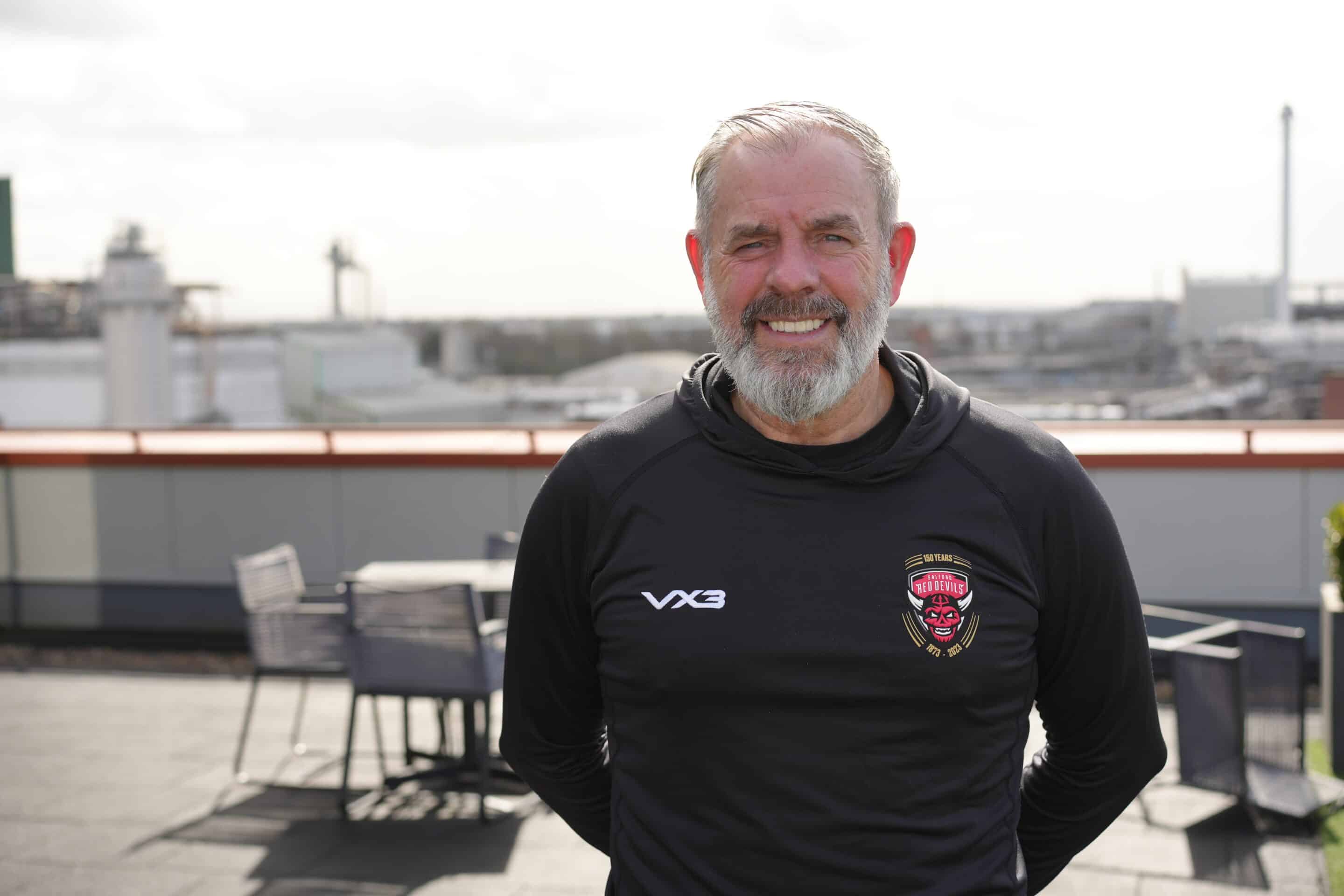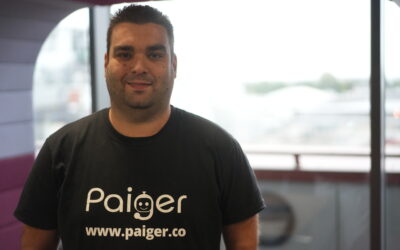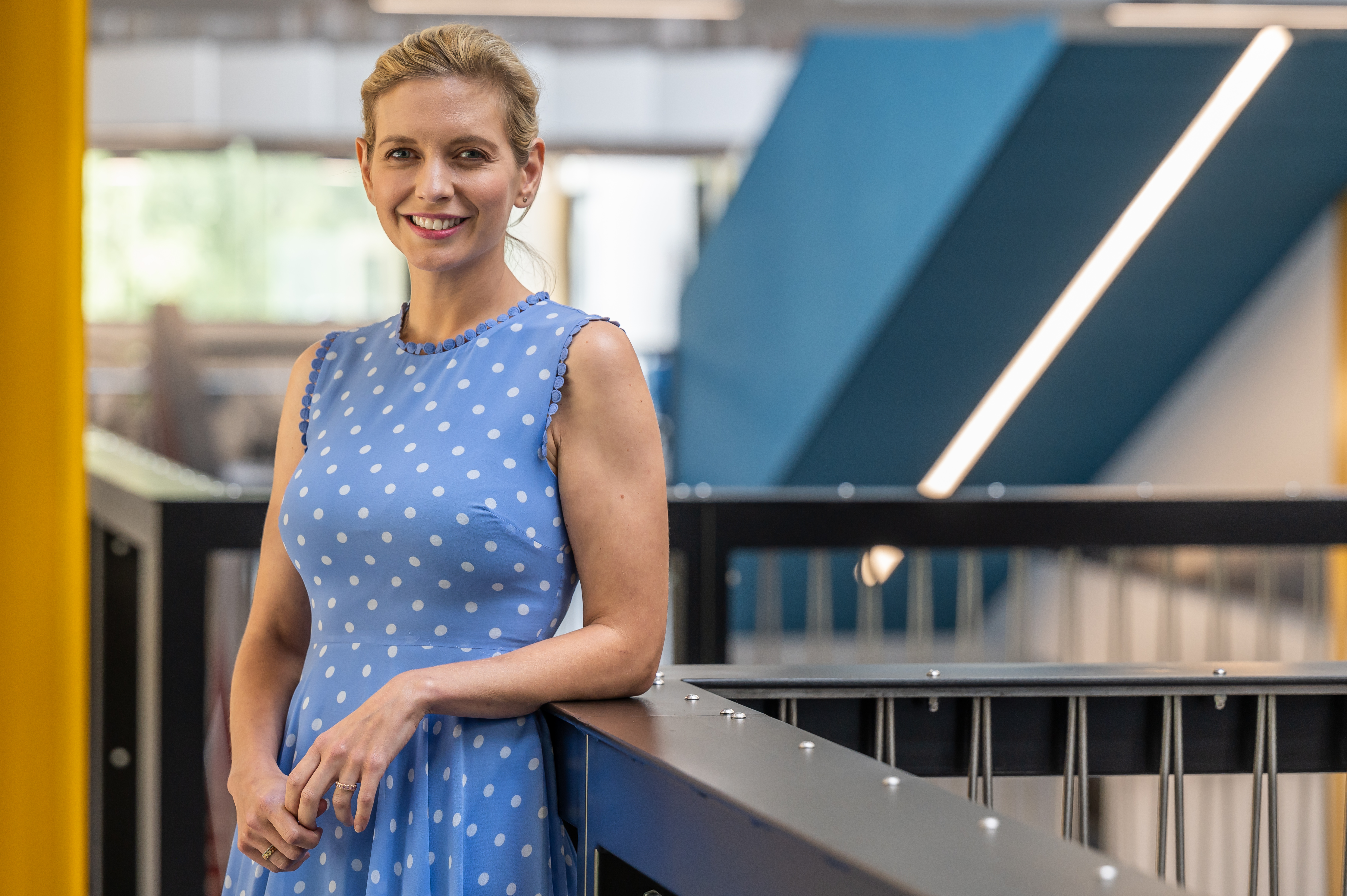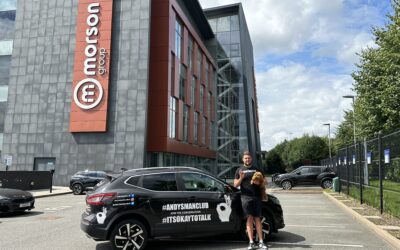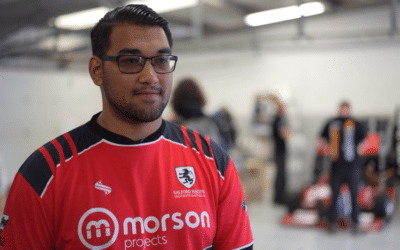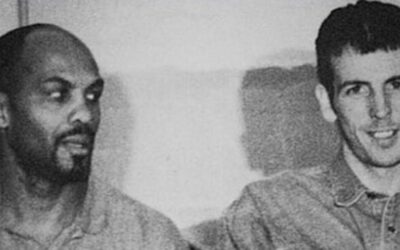We speak to Ian Blease about his story; from aspiring footballer to part-time rugby league player at Salford in the pre-professional era, juggling a day job in construction with the intense physical and mental fitness required to compete at the highest levels of sport.
Ian Blease is the Director of Rugby and Operations at Salford Red Devils. Already a club legend from his playing days with the Salford rugby league outfit in the 1980s and 1990s, Ian returned to the club in 2016 to take up a senior role in the boardroom. During his tenure, he has helped transform the fortunes of the Super League side, with successes including a 3rd place finish in the league, a trip to the Grand Final, and a Challenge Cup final.
Ian discussed his route into rugby league:
“When I was young I was actually a football-mad, like a lot of people in the city of Salford and surrounding areas. I supported Manchester United and still do to this day. I was never quite good enough to make it as a youngster coming through. I left school and a friend of mine, Mike Holliday who has sadly passed away, was really into his rugby. I think his brother Les Holliday was playing for Swinton at the time, so I went down to the local team. I told my dad I just fancied giving it a go. And it was bizarre, within I think about eight months scouts were coming down. We had a good team at the time. I think of the team, 12 ended up signing professional terms. I went to Salford, nearly went to Wigan, nearly went to Leigh. Salford was where I really wanted to go really, because I thought at the time it was an up-and-coming club. John Wilkinson had just taken over as chairman and manager, and I made my debut within the first season. I stayed there for ten years, maybe more, got a testimonial, played in some great teams, played in some average teams shall we say, but forged a really good career doing that alongside my work at the time because it was semiprofessional.”
He discussed what it was like as a local lad making his debut for the club:
“There’s a mixture of really nervous obviously, but excitement. And you’re proud because your parents and your family are there watching and you’re gracing the pitch that legends have trodden and played there before. So it was massive for me being a local lad. It was really significant in my life but you don’t realise the impact until later on and you think, oh yeah, that was good and I enjoyed that. And as you as your career progresses, you learn to manage your nerves. You turn them into energy more than nerves.”
Playing in the largely semi-professional game of rugby league at the time, Ian Blease also had to juggle his sporting career with a job in construction. This balance has instilled in him the desire to ensure that modern players, who themselves have to seek a career after their playing career finishes, look after themselves:
“ I had an apprenticeship at the start, so I knew I was going to have a career in construction and asset management, which is what I ended up doing. It was challenging to manage between work and training. We used to train Monday, Tuesday, Thursday and Saturday mornings, playing at weekends all the time. We used obviously work all day and then go to train at night, which was pretty difficult. You’d get 4 to 5 weeks off in a year pre-season and then you’d be back at it again. And I did that for ten, 12 years at Salford, which in the end probably tells on your mental as well as physically
You drove in from work, and within 20 minutes you’d be on the training pitch. It was really tough. But there are player welfare coaches in the game now and I actually sit on the player welfare board for the RFL. But there was nothing like that back in the day. That’s what rugby was.”
Since his rugby career ended as a player, Ian Blease has found education key, something else he tries to instil in the current Salford players
“ I fell into it, one of my managers said to me after I’d finished playing, I really like what you’re doing in the business side, I’d like you to do some studying. I didn’t take to school very well as I was apprehensive about it. But the tutor said to me, you get out what you put in. And I really enjoyed it, I spent 5 years doing my first master’s and then over the last couple of years did my sporting directorship degree at Media City.”
“The educational side was really the lift that I needed. I realised I could go into leadership and management, which led to me eventually coming back into rugby years later as a players agent. We have a great relationship with the University of Salford at the moment. We get four master’s degrees every year to give to our staff and players.”

